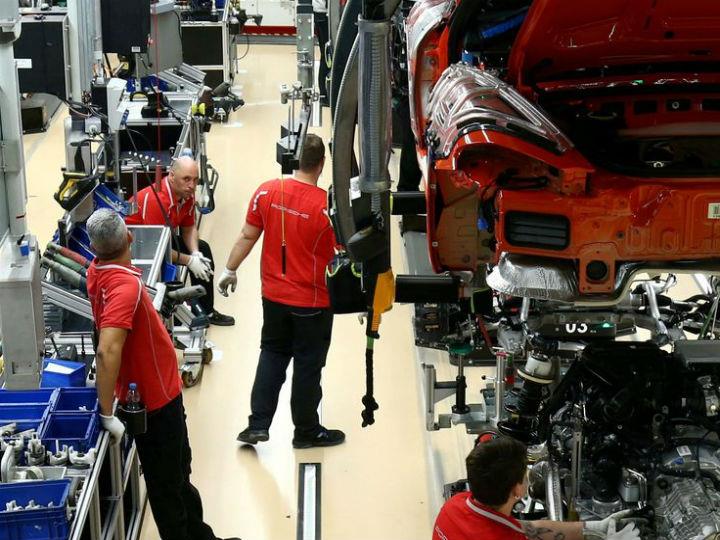by N. Peter Kramer
Germany’s industrial sector is suffering its biggest decline since 2009, the engine of the eurozone’s biggest economy is sputtering. It seems likely this will weigh on overall eurozone growth. Industrial output, including the dominant factory sector, dropped by 5.3 per cent in October from the same month in 2018, according to the federal statistics office. Combined with data published this week showing industrial orders fell sharply in October, and with the expectation of a further shrinking in November, it is clear the two-year downturn in German manufacturing is far from ending. The latest data support the view that a recession is still more likely than not in the coming quarters.
Germany’s export-focused economy has been hit by the US-China trade war, uncertainty over Brexit and a sharp decline in car-industry output, disrupted by new emissions rules and the shift to electric vehicles. The German car industry, which directly employs 830.000 people and supports a further 2 million jobs in the wider economy, faces huge challenges. Vehicle production in the country fell 5.6 per cent, taking the year-on-year decline to 14.4 per cent. Recently German automotive giants, from Daimler and Audi to suppliers including Continental and Bosch, have announced that about 50.000 jobs are at risk.
There are fears that the crisis in the manufacturing sector will spill over into the services industry and hit Germany’s labour market and consumer confidence. Pressure is increasing on the government in Berlin to ditch its commitment to a balanced budget and spend more money.
US jobs growth a relief for FED and President Trump
In contrast to Germany the US defies recession talk. The US economy added 266.000 jobs in November, as the American labour market continued to expand. The unemployment rate returned to a record low of 3.5 per cent, according to data released by the Labour Department, boosted by the return of the striking General Moors workers.
For instance, the leisure and hospitality sector added 45.000 jobs, showing that US consumers were spending more in restaurants and bars. Jobs in transport and warehousing, another sign of business confidence, also continued to rise.
Hourly earnings increased 3.1 per cent over the past year. Wage growth, while still lower than in previous expansions, shows that business in the US are competing for workers. The continued growth in the labour market has been called ‘amazing’ by economists in light of ‘all the recession talk’. One of them said: ‘it’s really a two-speed economy, you’ve got the manufacturing sector in a mild recession, you’ve got business investment in a mild recession, trade is not strong… and then everything else is strong, consumer is strong’.
The numbers will provide relief to the FED, which signalled it will pause before it provides anymore stimulus. And to Donald Trump who has staked his re-election campaign on the health of the economy. ‘GREAT JOBS REPORT!’ the president wrote in a tweet after the data were released.






